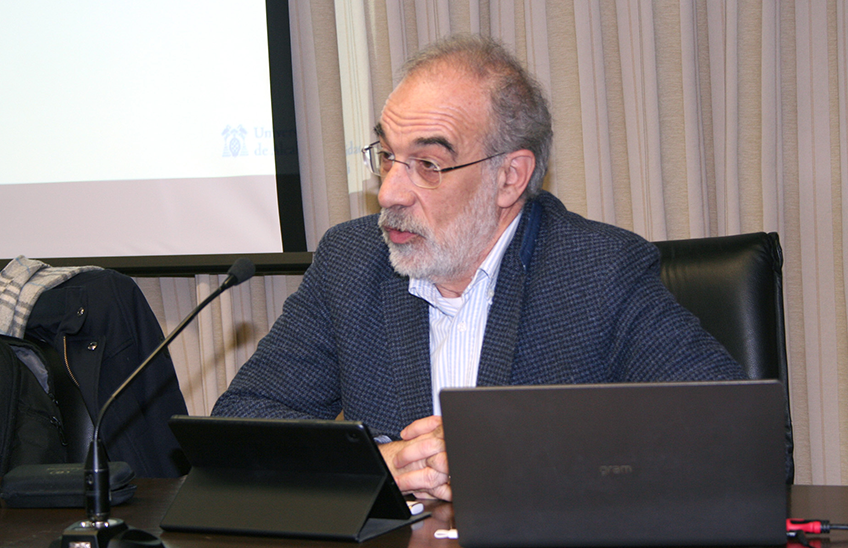"The interest in environmental issues is not the result of a fashion, it dates back to the first centuries of the Church."
On January 9 and 10 at the University of Navarra, Full Professor Emilio Chuvieco gave the course 'Discovering the theological reasons for the care of creation'.

"The interest in the environmental question is not the fruit of a fashion, but responds to a Christian tradition that goes back to the first centuries of the Church". So says Professor Emilio Chuvieco, Full Professor of the University of Alcalá, who taught at the University of Navarra on January 9 and 10 the course 'Discovering theological reasons for the care of creation'.Discovering the Theological Reasons for the Care of Creation'.
The initiative arises thanks to the partnership agreement signed between the University of Navarra and Professor Emilio Chuvieco Salinero, Full Professor of Geography and director of the Chair of Environmental Ethics of the University of Alcalá (UAH) awarded with the award Jaume I to the Protection of the Environment 2022 and especially interested in the relationship between Theology and Environment.
 For Professor Chuvieco, Christians should be exemplary in caring for the Creation that God gives us "by being responsible with the resources we consume, which should serve the most vulnerable people and future generations, but also the other creatures that share this planet with us".
For Professor Chuvieco, Christians should be exemplary in caring for the Creation that God gives us "by being responsible with the resources we consume, which should serve the most vulnerable people and future generations, but also the other creatures that share this planet with us".
In this sense, he assures that knowing the Christian roots of the environmental issue will help us to approach this topic with depth, avoiding easy slogans: "Religious values are fundamental for the change of behavior that is needed. Science informs, but does not transform. We need to link science and morality to make this social transformation possible, because environmental problems will not be solved with technologies alone. If there is no change in our conception of nature, the solutions proposed will always be superficial".
The course, in which some thirty people participated, reviewed these theological arguments, their biblical and patristic foundations and the most recent developments in theology that support the Christian vision of nature and justify the importance of the "ecological conversion" already proposed by St. John Paul II, promoted by Benedict XVI and promoted with special relevance by Pope Francis. Finally, some practical consequences of this conversion were reviewed, both in the life of staff and in the management of environmental issues that is carried out in different Catholic institutions.




